Science Illustrated delivers natural science, break through discoveries and an understanding of the world for the entire family. Packed with stunning photography and in-depth editorial it’s a visually spectacular gateway to the world looking into the beginning of life to distant objects in the universe.
Science Illustrated
MEGAPIXEL // FACEPLANT ON THE MOON
SUBSCRIBE NOW for your chance to win a copy of First Knowledges Innovation
Men and women show different signs before arrest • During the hours before an acute cardiac arrest, the body produces warning signals that seem to vary considerably between men and women.
Hydrogen aircraft makes its first manned flight • A German developer has conducted the first test flights of a manned aircraft powered by liquid hydrogen.
Did mammals take on the dinosaurs? • The discovery of a spectacular fossil in China challenges our understanding of the roles established between dinosaurs and mammals during the Cretaceous.
Curiosity rover may have found evidence for seasons on Mars • Similar evidence can be found in Death Valley, California, and according to researchers, it indicates that Mars may once have had a climate cycle resembling our own.
Did early humans face an extinction event? • New DNA studies reveal that some 900,000 years ago, a series of extreme events reduced our ancestors to as few as 1300 individuals.
The key to our success was a combination of qualities • Creativity, collaboration, and language: a range of gifts gave us advantages to outcompete and survive – and many of them already existed in our ancestors.
Atmospheric phenomenon could intensify upcoming Arctic melts • According to a new study, the fate of sea ice may be in the hands of a phenomenon that controls the quantity of warm water flowing into the Arctic Ocean region.
Night-owl lifestyle comes with health penalties • Researchers have found that staying up late has knock-on negative side-effects.
Six types of people • Sleep researcher A.A. Putilov categorised people by their activity levels: types A and B, and four other chronotypes.
Sea creature with 20 arms found near Antarctica • Scientists investigating the ocean floor near Antarctica have found a new species with 20 arms and tiny claws.
Can animals predict natural disasters? • “Last issue’s report on earthquake warnings reminded me that I have read of animals sensing volcanic eruptions or earthquakes early. Is this true, and if so, how do they do it?”
How much information can the brain hold in data terms? • “If I filled my entire brain with data, how much could it hold compared with, say, my mobile phone? Could I download my whole brain?”
TEST YOURSELF • Solve problems designed for different types of intelligence, and find out in which you excel!
Why are muscles sore two days after exercise? • “After a gym session I feel great and nothing much hurts. Then two days later, my muscles are really stiff and sore! Why don’t my muscles feel tired immediately after the workout?”
Does the Sun make a sound?
Does petrol ‘go off’? • “In apocalypse movies, people stockpile petrol in cans. But how long would petrol last if stored that way?”
If an asteroid hits Earth today, how big must it be in order to wipe out all life? • Around 66 million years ago, a 10km-wide asteroid led to the extinction of the dinosaurs. But plenty of life survived. Could an asteroid kill everything?
Why are chips so addictive?
Could megalodon still be alive? • The film ‘The Meg’ is about ancient giant sharks that have been living undetected out in the deep ocean. Would such a survival ever be possible?
Which motion is the the body’s fastest? • Blinking is fast, but scientists have now found a human...

 Issue 111
Issue 111
 Issue 110
Issue 110
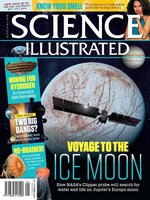 Issue 109
Issue 109
 Issue 108
Issue 108
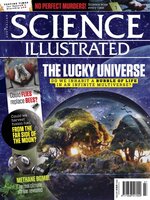 Issue 107
Issue 107
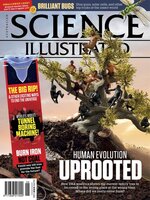 Issue 106
Issue 106
 Issue 105
Issue 105
 Issue 104
Issue 104
 Issue 103
Issue 103
 Issue 102
Issue 102
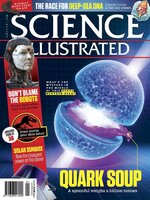 Issue 101
Issue 101
 Issue 100
Issue 100
 Issue 99
Issue 99
 Issue 98
Issue 98
 Issue 97
Issue 97
 Issue 96
Issue 96
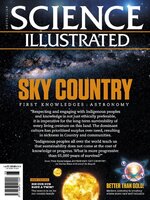 Issue 95
Issue 95
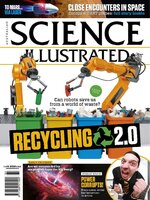 Issue 94
Issue 94
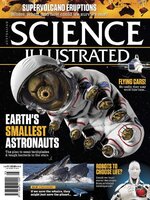 Issue 93
Issue 93
 Issue 92
Issue 92
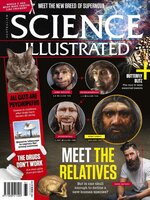 Issue 91
Issue 91
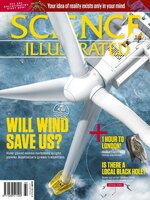 Issue 90
Issue 90
 Issue 89
Issue 89
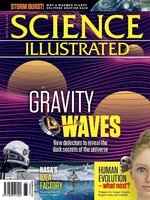 Issue 88
Issue 88
